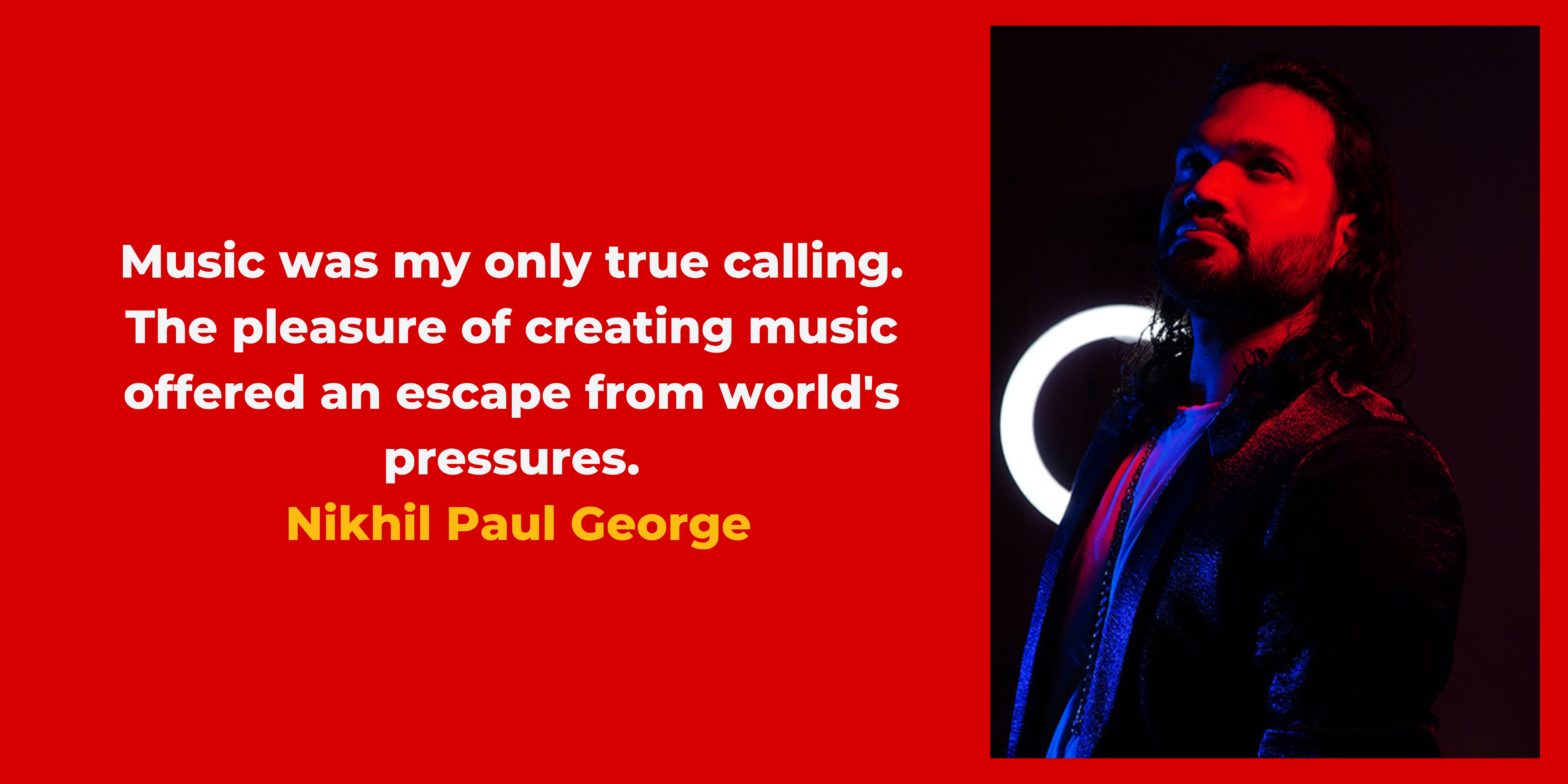The Passion and Resilience Behind the Soulful Melody of Nikhil Paul George
Join us in an exciting conversation with renowned musician Nikhil Paul George, known for his incredible work in famous hits of Dangal, Lal Singh Chaddha, Hostel Daze, and more. Know about his journey through the world of music, where each note is a testament to his passion, resilience, and an undying love for the craft.
1. What fueled your determination to pursue your passion amidst challenges?
Early on, my determination to pursue music stemmed from an odd mix of limiting beliefs, the pursuit of the pleasure of creative freedom, and a desire for validation. I believed music was my only true calling, and the pleasure of creating offered an escape from the world’s pressures. There was also an unhealthy element of striving for recognition and wanting to earn admiration. This pursuit of external validation fueled a perfectionist streak and constant pressure to “arrive” at some undefined point of success. Over time, however, my relationship with music has evolved. Now, the love of the craft itself, the pure joy of creating and expressing through sound, is my driving force. The distortions have faded, replaced by an intrinsic passion that brings me immense satisfaction in the present.
2. Could you elaborate on some of your significant projects or achievements?
My musical journey has been blessed with incredible collaborations and diverse projects. I’ve had the privilege of lending my voice to films like Barfi!, Shaandar, Shaadi Ke Side Effects, and web series like Farzi & Hostel Daze, while also contributing to the music production for Dangal, Lal Singh Chaddha, and Ae Dil Hai Mushkil among others. These experiences have been immensely enriching, but I’m most proud of overcoming the early limitations I faced. Teaching myself the ropes in my initial years, without formal resources or guidance, instilled a deep sense of resilience and resourcefulness.
Later, scholarships to the Royal College of Music in London and Trinity College’s LTCL Diploma program provided invaluable opportunities to hone my skills and broaden my horizons. Working with multiple orchestras in London, and garnering recognition through awards like Gvmt of India & Inlaks scholarships, Gima, Filmfare, and Mirchi awards, were gratifying milestones. However, I firmly believe that dwelling on past achievements distorts clear thinking and diminishes the present moment. Time spent reminiscing is also time stolen from the endless creative joys of the present.
3. What stands out as the most unforgettable performance or experience in your musical journey thus far?
Choosing a single most unforgettable experience is like picking a favorite star from a radiant sky. However, my IIFA Awards production and performance in Tampa with a black gospel choir, bluegrass musicians from Nashville, Bollywood composer Pritam, and other playback singers like Papon, Aditi, Shalmali, and Nakash, was a truly electrifying collaboration that transcended borders and genres. The energy on that stage was palpable, and the shared passion for music created a magical moment. Recording with orchestras in London is another experience that always ignites my soul.
4. Which musicians or artists have greatly influenced your music and personal style?
One’s musical fabric is woven from a multitude of threads. The intricate world of classical guitar composers like Tarega and Segovia has deeply influenced my technical foundation. Bollywood composers A. R. Rahman, Pritam, SD Burman, and RD Burman have shaped my understanding of contextual storytelling through music. But the most profound influences come from my closest circle – my family, my bandmates, and my mentors. My sister, mother, and father provided endless support and encouragement, while my fellow music makers have been my collaborators, my cheerleaders, and my sounding board.
5. Could you share insights into your creative process when composing and arranging music, along with valuable tips for aspiring students?
The creative process can be a labyrinthine journey, with endless confusing possibilities at every turn. For me, navigating this maze is guided by a single compass: emotion. I ask myself, “What emotions does this piece need to evoke?” Every creative decision, every choice, is evaluated in the light of its ability to bring those emotions to life using the current resources I have. It’s a constant dialogue between heart and mind, feeling and technique. My advice to aspiring students is to build a robust technical toolbox, but never let it overshadow the fire in your heart. Master your craft, yes, but always remember, music is not about technical prowess or satisfying the ego; it’s about channeling passion into sound waves that resonate with one’s being.
